Feng Shui in Asia Business and Arrangement Tips 2024
ASIA BUSINESS FACTSBUSINESS TIPS
Alan Wong
2/20/20248 min read
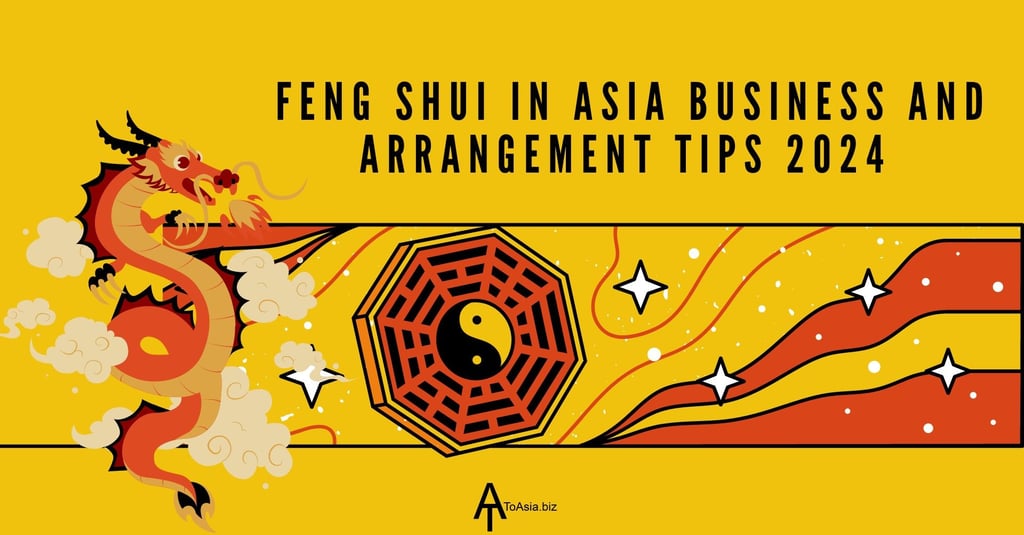

Feng Shui has always played an important role in traditional Chinese culture, especially when a new year arrives, as people hope to attract good luck, harmony, wealth, and health through Feng Shui arrangements.
We are into the year of Dragon, the 'loong (龍) – people usually call it the Dragon – symbolizes nobility, good fortune, and vitality which means it is going to be a year of auspicious opportunities, and dragon-sized blessings for us all.
2024, as the Universal clock and magnetic field change, it will have a significant impact on Feng Shui arrangements and fortunes.
What is Feng Shui?
Feng Shui (風水), an ancient Chinese art and science dating back over 3000 years, is a complex body of knowledge that reveals how to balance the energies of any given space to assure health and good fortune for people inhabiting it.
Feng means wind and Shui means water.
In Chinese culture, gentle wind and clear water have always been associated with good harvests and good health, thus good feng shui came to mean good livelihood and fortune, while bad feng shui means hardship and misfortune.


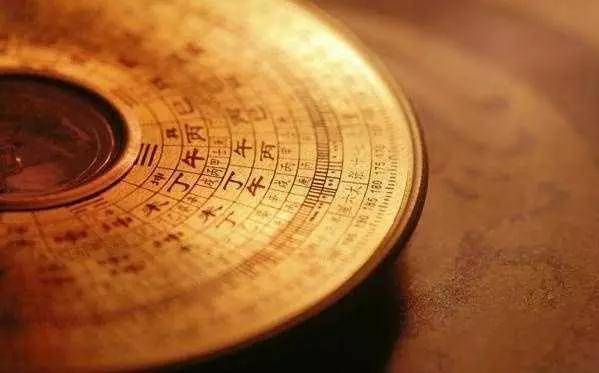



What is Period 9 or Jiu Yun?
Period 9, or Jiu Yun (九運), in Feng Shui, is a 20-year cycle that is part of a larger 180-year sequence divided into three equal parts known as Upper, Middle, and Lower Yuans.
Each Yuan consists of three 20-year periods.
Period 9 represents the last cycle of the Lower Yuan, spanning from 2024 to 2043.
This era is associated with the Fire element, signifying transformation and bringing dynamic changes that can affect business, technology, and personal wealth.
It is a time characterized by innovation and fast-paced development, especially in industries like digital technology and renewable energy.
To optimize Feng Shui during this period, it is important to adapt living and working spaces to align with the changing energies of the time, which can significantly influence long-term luck and success.
Additionally, adapting to the dominance of the Fire element in Period 9, suggests aligning business strategies with this transformative energy to capitalize on growth and innovation opportunities in sectors like AI, digital media, and beauty/cosmetics.
Principles of Feng Shui
The principles of Feng Shui focus on the flow of energy, the yin (陰) and yang (陽) balance, and the five elements (五行 wood, fire, earth, metal, and water).
Its practices are aimed at arranging the human-made environment on spots with good qi, the believed positive or life-affirming energy flow.
Feng Shui ascribes a particular significance to the orientation of important objects and rooms.
The principles also suggest how to decorate your home in ways that create a positive energy flow and harmony.
Which Countries in Asia Practice Feng Shui?
Originally from China, Feng Shui has become a global practice.
Its influence can be seen across various Asian countries like Singapore, Korea, Japan, and Vietnam.
Its principles have also reached the Western world where it is used by
architects, interior designers, and landscape architects.
The principles of Feng Shui have been interwoven into the fabric of Korean history and society, influencing decisions from the positioning of ancient capitals to the arrangement of living spaces.
The Goryeo dynasty, for instance, was noted for its reliance on Feng Shui for the selection of its capital.
The philosophy was so integral that the Joseon dynasty included Feng Shui studies
in its state examinations, evidencing the deep cultural integration of Feng Shui's principles.
This historical context highlights the cultural significance of Feng Shui in Korea,
which has been regarded not just as a set of beliefs but as an applied science that interacts with geography and the natural world.
In contemporary settings, Feng Shui's principles are still applied, albeit more modernly, as the practice continues to influence urban planning, architecture, and interior design.
The knowledge has been passed down and evolved, with Feng Shui experts and scholars dedicating their lives to studying its principles based on geography and astronomy, aiming to improve living conditions by finding auspicious sites for various purposes.
The practice of Feng Shui in Korea and its integration into the everyday lives of its people, as well as the strategic decisions made by its leaders, illustrates the enduring legacy and relevance of Feng Shui principles in shaping and enhancing the living environment.


Feng Shui and Religion
Feng Shui originated in China and is distinct from Buddhism or any other religious practices, although some Buddhists and people of other faiths may practice Feng Shui.
While Feng Shui incorporates elements from various philosophies and religious systems, such as Taoism, it is not a religion itself.
It does not require belief in a higher power or conformity to a set of religious practices.
Instead, it's a method of understanding how the environment and its arrangement can affect one’s energy and well-being.
How Does Feng Shui Affect Business?
In the business world, especially in Asia, Feng Shui is taken into consideration when designing and arranging business spaces.
The layout of an office, the direction a building faces, and even the location of the entrance can be thought to influence the success and prosperity of a business.
By creating a harmonious environment, Feng Shui is believed to attract positive energy which can lead to improved business relationships, increased productivity, and ultimately, business success.




While Feng Shui is not scientifically proven,
its principles have been widely recognized for creating harmonious environments that contribute to personal well-being and business success.
If you are considering starting a business in Asia, it can be beneficial to partner with someone who has experience and understanding of local cultures and practices.
This cultural literacy can be an asset in creating a business environment that is both welcoming and prosperous.
For a business consultant who understands the depth of Asia's business environment, reach out to us, ToAsia.biz, and take the first step towards your success in the Asian market.
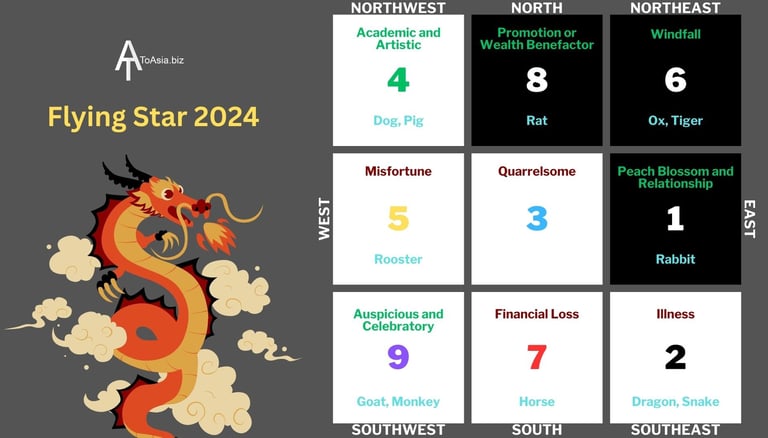

What is the Flying Star Chart?
The Flying Star Chart is a fundamental tool in Feng Shui that outlines the shifting influences of various energies, or 'stars', across different sectors of space each year.
These stars can have favorable or unfavorable effects on aspects of life, such as health, wealth, and relationships.
The 2024 Flying Star Chart will delineate how these energies interact with the living and working environments, guiding how to enhance positive energies and mitigate the negative ones to improve luck and well-being in the Year of the Dragon.
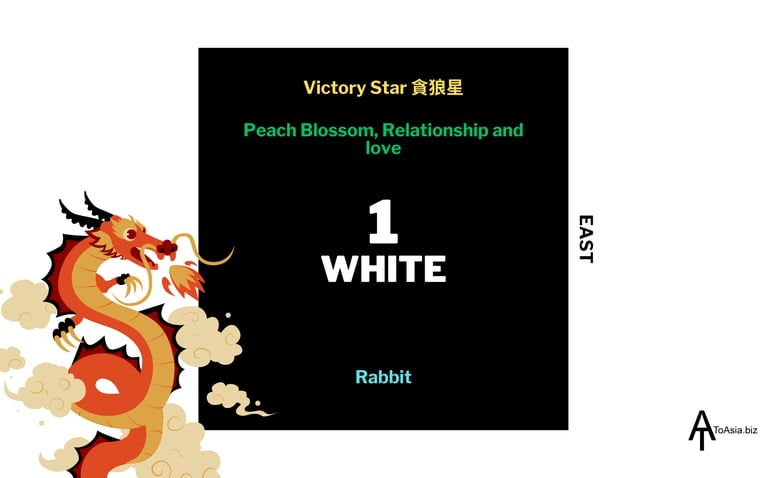

Feng Shui Arrangement Tips 2024
Let's delve into where the nine auspicious and inauspicious directions are for 2024 and how to deal with them.
East - Peach Blossom and Relationship Position
In 2024, the "One White Greedy Wolf Star" flies to the east, representing the direction of peach blossoms, relationships, and love.
With the influence of the Nine Stars Cycle, this star becomes more flourishing, strengthening its positive impact. Singles or those wishing to improve their relationships should pay special attention to this direction.
Additionally, this position is also beneficial for fame, benefactors, and windfall luck, particularly advantageous for those in artistic, creative, or sales-related professions.
Southeast - Illness Position
The "Two Black Tortoise Door Star" flies to the southeast, representing the direction of illness and disease.
During the Nine Stars Cycle, this star is both auspicious and inauspicious, but it becomes an ominous star when it is out of order.
Therefore, we should pay special attention to keeping this area clean and avoid placing rubbish or clutter. Additionally, we should focus on our own and our family's health.
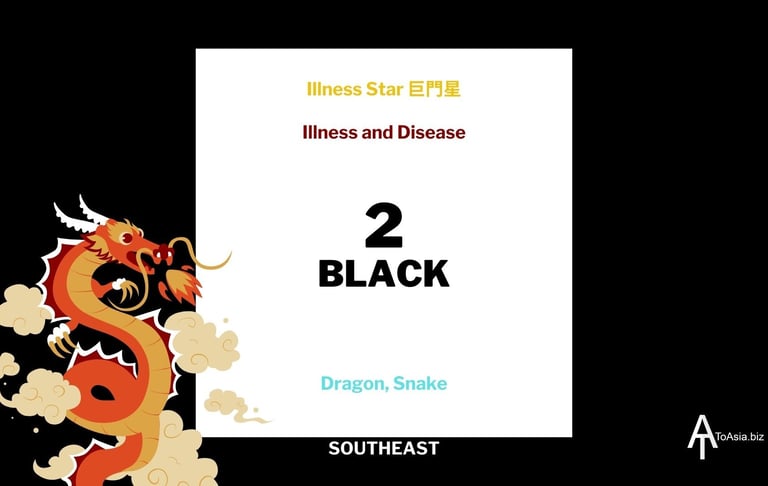

South - Financial Loss Position
The "Seven Red Breaking Army Star" flies to the south, representing the direction of financial loss, robbery, and leakage, known as the star of financial decline.
During the Nine Stars Cycle, this direction is beneficial for booming industries such as the entertainment industry, but we should avoid placing rubbish or clutter, be cautious of financial losses, and avoid engaging in conflicts or arguments.
Southwest - Auspicious and Celebratory Position
The "Nine Purple Nobleman Star" flies to the southwest, representing the direction of happiness, celebration, and romantic relationships.
This star belongs to the fire element and is the most powerful wealth star in the Nine Stars Cycle, beneficial for benefactors and financial fortunes.
Those wishing to get married, have children, or improve their romantic relationships should pay special attention to this auspicious direction and create a joyful atmosphere.
Additionally, this position is particularly favorable for women, so female homeowners can choose the southwest direction to enhance their fortunes.
West - Misfortune Position
The "Five Yellow Humble Official Star" flies to the west, representing the direction of accidents, illnesses, injuries, and death.
This star is the most ominous star, so we should be extra cautious about health and conflicts.
Compared to the minor illness position in the east, this star has more destructive power, so it is advisable to stay away from this direction and avoid renovations.
NorthWest - Academic and Artistic Position
The "Four Green Literary Star" flies to the northwest, representing the direction of education, official positions, and arts.
When the Nine Stars are in order, this star is beneficial for cultural and artistic pursuits, academic excellence, exam success, and self-improvement.
It also presents opportunities for career advancement and salary increases, making it worth paying attention to this direction.
North - Career Promotion or Wealthy Benefactor Position
The "Eight White Assistant Star" flies to the north, representing the direction of wealth from work, career advancement, and prosperous investment.
It is the wealth star of 2024. However, in the Nine Stars Cycle, this direction can be both auspicious and inauspicious, requiring special attention.
Avoid placing rubbish or clutter in this direction to maintain the momentum of wealth.
Northeast - Windfall Position
The "Six White Military Star" flies to the northeast, representing the direction of windfall gains, unexpected wealth, and influential benefactors.
During the Nine Stars Cycle, it becomes a declining star, but it also serves as a windfall star.
Avoid placing clutter in this direction and pay special attention to the Feng Shui in this area to enhance the potential for unexpected financial gains.
Center - Quarrelsome Position
The "Three Jade Quarrelsome Star" flies to the center, representing the direction of disputes, conflicts, and legal issues.
This star is the most challenging one during the Nine Stars Cycle.
It is advisable to avoid any major renovations or activities in the central area to minimize the potential for conflicts and legal complications.
Keep this area clean and harmonious to maintain overall balance in your living or working space.
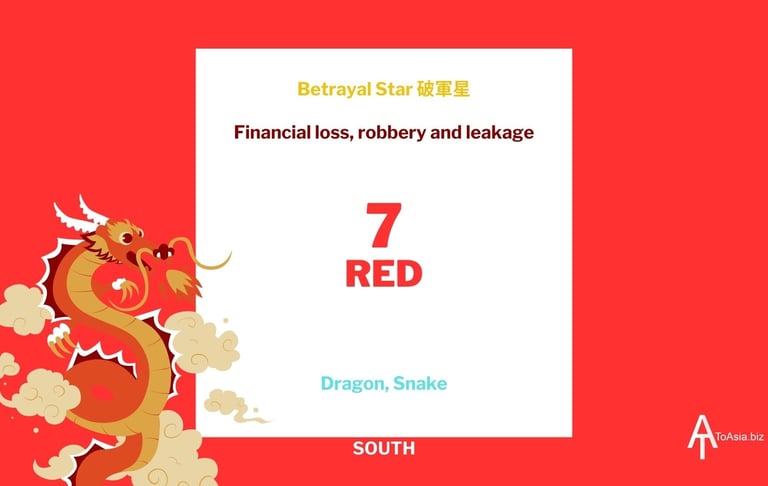

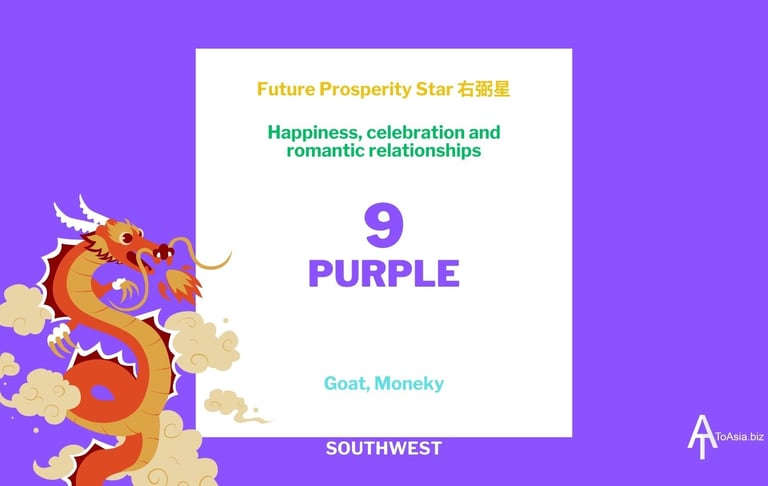

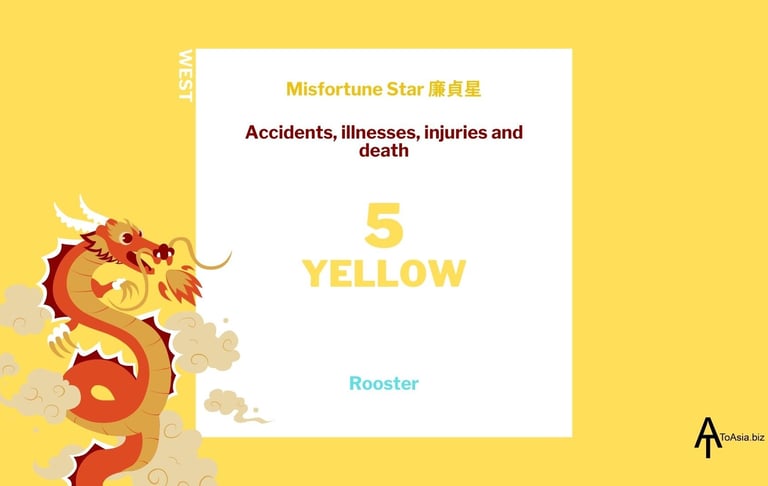

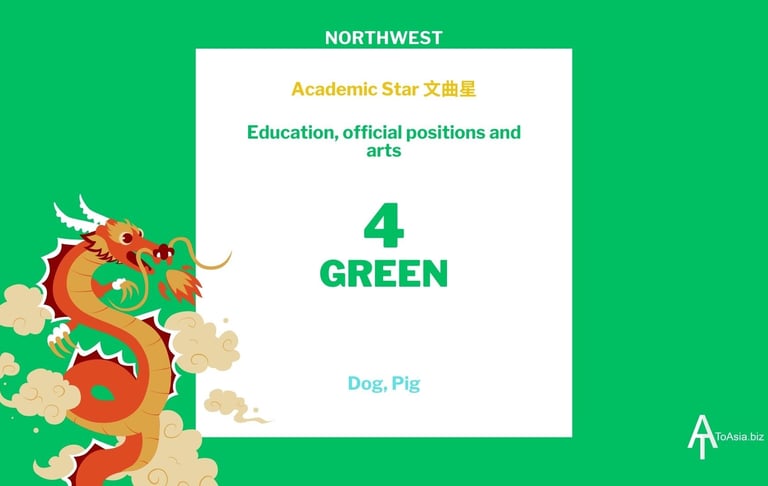

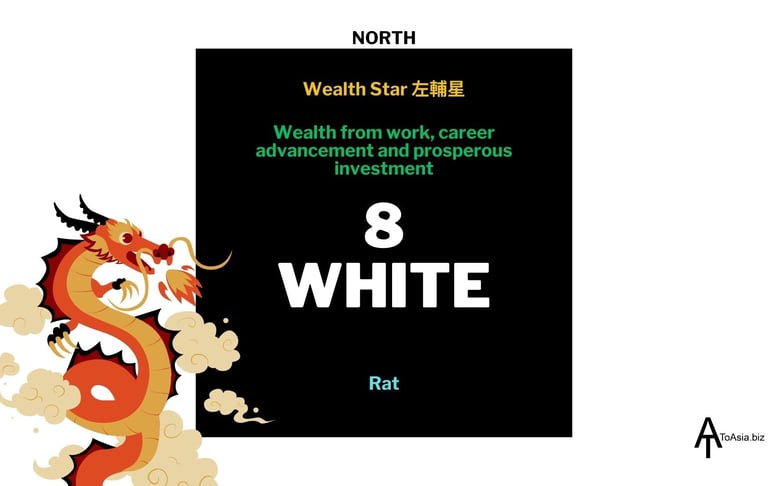

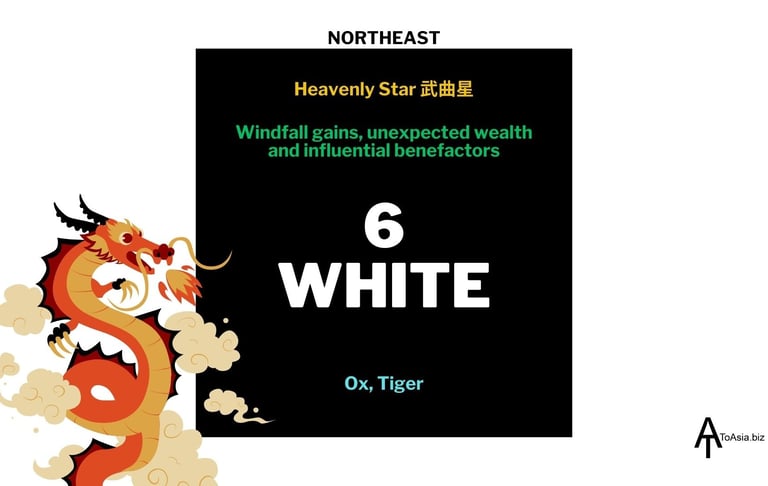

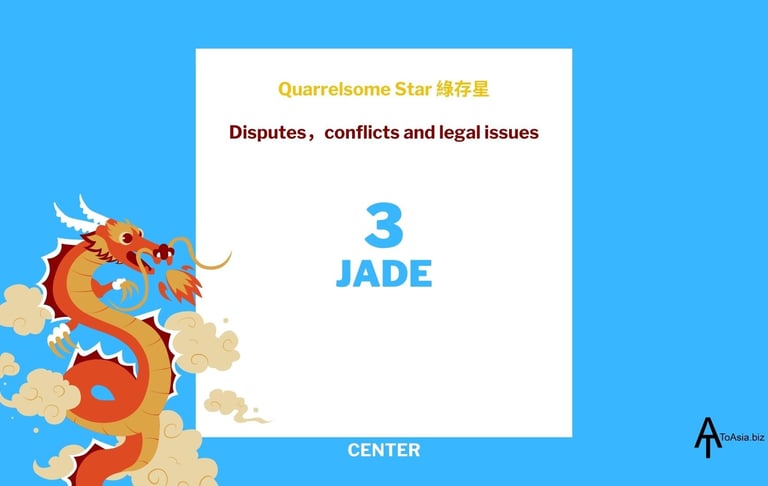



Alan Wong is founder of ToAsia.biz and a startup mentor with over 20 years of professional experience managing software, Saas and consulting services MNCs.
About Author
Copyright © 2026 ToAsia.biz


We lead your business to Asia
Our Business Growth Experts help SaaS businesses achieve growth in Asia and become profitable FAST.
Send us a message via WhatsApp
